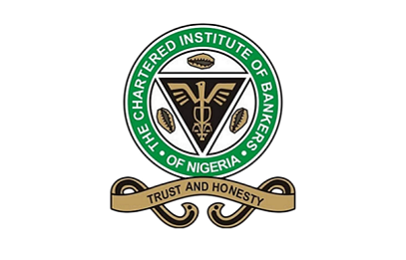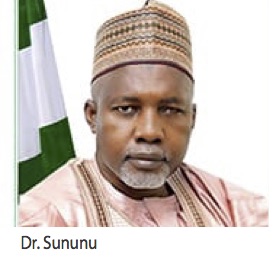News
FG prosecuted 3,000 terrorism cases, coordinating next phase of trials – Malami
The Attorney-General of the Federation and Minister of Justice, Abubakar Malami SAN says its ministry has prosecuted 1,500 terrorism cases and currentlt collaborating with relevant agencies for next phase of terrorism related trials.
Malami made this known in Abuja, during the 17th Edition of President Muhammadu Buhari’s Administration Scorecard Series on Thursday.
“A total of 3,000 Terrorism cases have been profiled to date out of which over 1500 cases were prosecuted, with 397 convictions realised.
“A total of 7000 cases involving various offences including maritime, armed robbery, vandalisation of electrical equipment and pipelines, financial matters, cybercrime, kidnapping and anti-corruption have been successfully prosecuted.
“We are also coordinating the next phase of terrorism related trials in collaboration with the Federal High Court, the Legal Aid Council, and the Defence Headquarters’’.
He said that the ministry in conjunction with relevant security and Law Enforcement Agency (LEA) has developed a framework for joint investigation and collaboration geared towards engagement of prosecution-guided investigation in terrorism cases, to address challenges of successful prosecutions.
“Furthermore, a robust interface has been developed between my office and LEA for synergy and good working relationship in the area of arrest, investigations, as well as Case Management, also as part of efforts to enhance prosecution of cases.
“The Ministry is currently remodeling structures at the Wawa Cantonment, Kainji to accommodate eight courtrooms, Judges’ Chambers, living accommodation, Lawyers’ dressing room and conveniences to make them conducive for Judges, Witnesses as well as Defendants’’.
The need to have a permanent structure arose on the account of the fact that before now, what is obtainable in terms of book-haram and terrorism cases was an ad-hoc arrangement.
“The ad-hoc arrangement of moving judges from jurisdictions to a particular location for prosecution to hold and whenever they are demobilized, the idea of mobilising them back to preside becomes a problem.
He said the permanent structures will help in speedy prosecution and justice delivery.
The minister therefore assured Nigerians that as the Chief Law Officer of the federation, he would continue provide opinion, guide government and by extension of the section 174 of the constitution coordinate anything prosecution particularly of criminal cases taking place in the nation.
News
CIBN backs bank recapitalisation for enhanced economic growth

The Chartered Institute of Bankers of Nigeria (CIBN) has expressed support for the planned recapitalisation exercise for banks in the country.
Ken Opara, President/Chairman of Council, CIBN, expressed this during the 2024 annual lecture of the institute on Tuesday in Lagos.
Opara said adequate liquidity within the banking system was fundamental to fostering sustainable economic growth and development.
He said that the recapitalisation would further help banks to deepen liquidity and guarantee access to credit needed for economic growth and prosperity.
He said that CIBN and the Nigeria Exchange Group (NGX) had formed collaborations toward building capacity for the recapitalisation of banks.
Opara added that the institute was also collaborating with Africa Guarantee Fund (AGF) for capacity building for SMEs, preparing them and building their capacity to access finance.
He called for more allocation of credit to the real sector, which was the foundation of the nation’s economic activities for increased liquidity.
Opara stressed the need for addressing challenges faced by the sector to enhance its competitiveness against foreign counterparts.
To resolve the challenges, he urged the government to improve further the ease of doing business and infrastructural development, such as power, roads, and rail networks.
The CIBN president also called for industrial centres where companies could co-habit and share common infrastructure,
harmonise and reduce the various taxes and levies, including locating them in a single hub.
He said the theme, “Improving Availability of Credit in the Nigerian Real Economy: The Critical Importance of Liquidity”, was timely to address current challenges in the nation.
“As we navigate the complexities of our current economic landscape, it has become increasingly evident that ensuring adequate liquidity within the banking system is fundamental to fostering sustainable economic growth and development.
“The real economy comprises the agriculture, manufacturing, construction, and services sectors and serves as the tangible foundation of the nation’s economic activity.
“These sectors collectively represent the intricate web of goods and services that drive economic growth, create employment opportunities, and enhance the overall standard of living.
“Despite the significant relevance of the real sector, access to credit for such key sectors compared to other climes is relatively low,” he said.
He said a survey conducted in more than 40 economies and released by Statista in 2024 revealed that nearly 141 trillion dollars worth of credit was lent to the real sector in advanced economies in the second quarter of 2022.
He added that the figures were twice as high as the volume of credit to the same sector in emerging markets.
He commended improvements in liquidity within Nigeria’s real sector but called for increased credit to sector, particularly agriculture.
“According to data from the Central Bank of Nigeria (CBN), the Net Domestic Credit stood at 66.4 trillion Naira as of December 2022, showcasing the substantial credit extended by financial institutions to the real sector of the economy.
“This figure experienced a significant surge to 96.1 trillion Naira by December 2023, highlighting the tremendous potential for growth and development in the real sector,” he said.
He listed credit volume allocated to the key sectors, saying the Agricultural sector had N5.8 trillion representing about six per cent of the total credit.
He said the manufacturing sector had N19.7 trillion, representing approximately 21 per cent of the total credit, while the services sector had N36 trillion, representing 37.4 per cent of the total credit.
“I humbly propose that we consider offering more credit to these key sectors and particularly the agriculture sector.
“It is for this reason, ladies and gentlemen, that the recapitalisation exercise is a welcome development.
“The recently announced upward review of the Minimum Capital Requirements of Nigeria by the Central Bank of Nigeria would further empower banks to extend more credit to the economy’s productive sectors,” he said.
The Guest Speaker, Prof. Graham Penn, speaking on the theme, explained how other developed countries were leveraging on credit and the need for Nigeria to increase liquidity for economic prosperity.
Penn, a professor of International Finance Law at University College London, listed challenges and measures Nigerian banks, regulators and businesses could adopt to implement laws and regulations to facilitate true sale securitisation.
News
NERC transfers regulatory oversight of electricity market in Ekiti to state govt


The Nigerian Electricity Regulatory Commission (NERC), says it has transfered regulatory oversight of electricity market in Ekiti State to the state Electricity Regulatory Bureau (EERB).
News
Minister summons Lead British Int. School over bullying allegation


-
Finance3 months ago
Court orders Sen. Victor Umeh to repay N136m bank debt to AMCON
-



 Abuja Update2 months ago
Abuja Update2 months agoUNDP, FG partnership needed to achieve inclusion, equity- Minister
-
Abuja Update4 weeks ago
Banks drive stock market performance with N147bn gain
-



 Infotech3 weeks ago
Infotech3 weeks agoWorld Backup Day: NITDA urges Nigerians to ensure backup of data
-
capital market2 years ago
Rt.briscoe, FBNH, Others halts negative performance of stock market
-



 Health2 weeks ago
Health2 weeks agoImmunisation: FG, GAVI seek synergy with Sokoto Govt.
-
Infotech2 weeks ago
Forex for Beginners: Unveiling the currency exchange and how to trade it
-
Submission Guidelines4 months ago
CALL FOR SUBMISSIONS: POETRY COLUMN-NND




